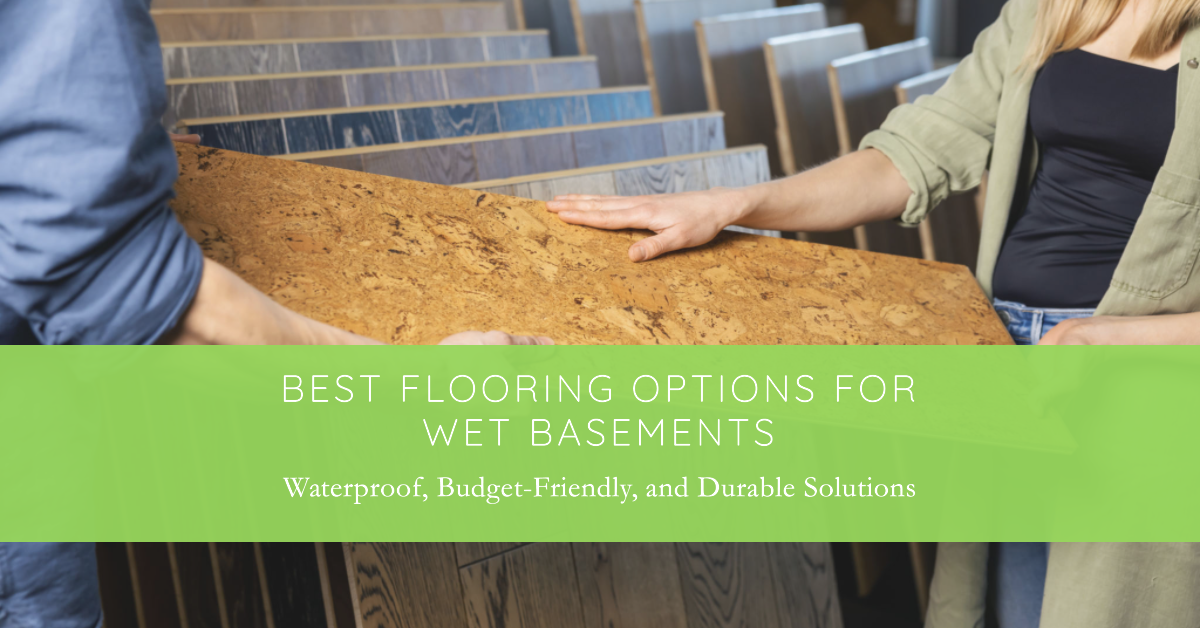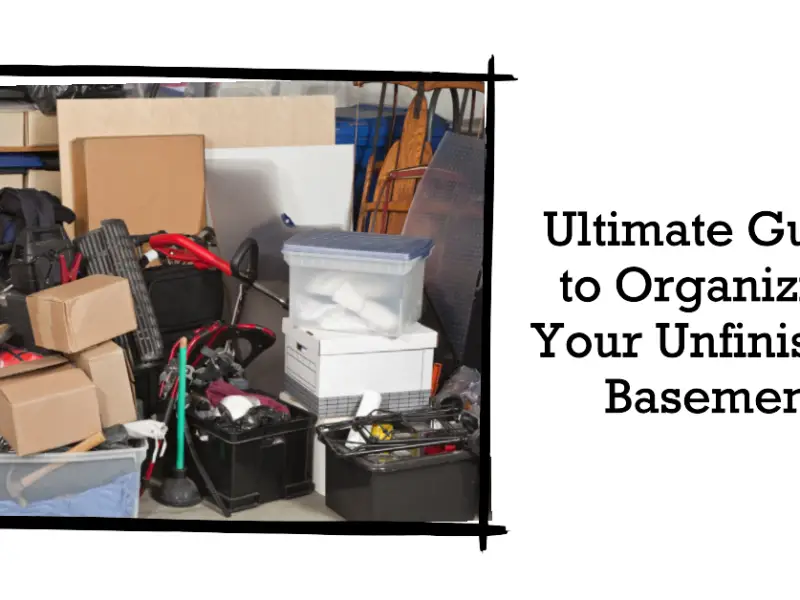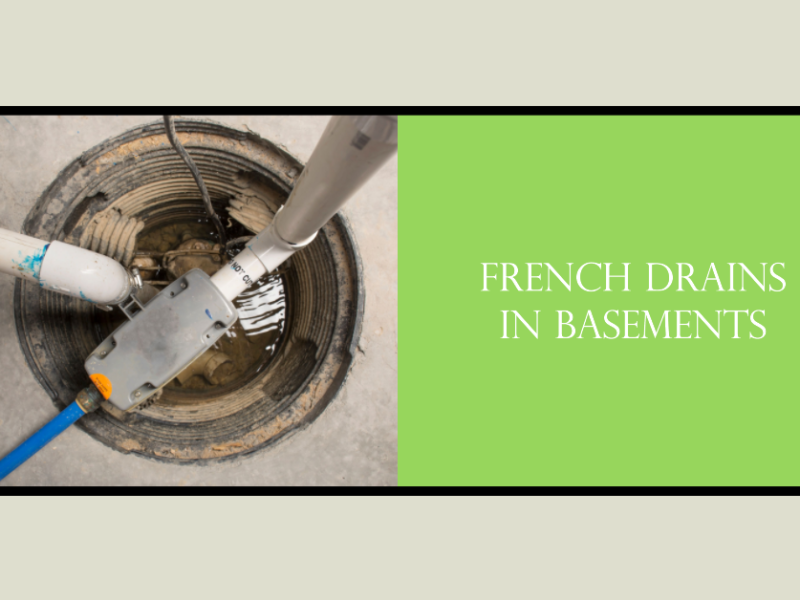I am a well-rounded expert with proficiency in several fields. My experience spans from being a dedicated chef and homemaker. As a passionate homesteader, I’ve honed my skills in sustainable living and animal care, ensuring a holistic approach to everything I undertake. Email me or Txt: (# removed due to spam, please email)
When it comes to choosing the right flooring for your wet basement, making a well-informed decision is crucial. The type of flooring you install can significantly impact the comfort, functionality, and overall value of your basement space.
In this article, we’ll discuss the best waterproof flooring options for wet basements, as well as some budget-friendly alternatives that work well over damp concrete.
Evaluating Your Basement’s Moisture Level
Before selecting basement flooring, it’s essential to identify the sources of moisture in your basement and assess the severity of dampness.
Common sources of moisture include groundwater seepage, plumbing leaks, and condensation. You may need to consult with a professional to determine the most effective moisture control solutions for your specific situation.
When it comes to evaluating your basement’s moisture level, there are a few key things to keep in mind.
Firstly, it’s important to understand that moisture can enter your basement in a variety of ways, including from groundwater seepage, plumbing leaks, and condensation.
Groundwater seepage is one of the most common sources of moisture in basements. This occurs when water from the soil around your home seeps through the foundation walls and into your basement.
This can happen due to poor drainage, cracks in the foundation, or high levels of groundwater. To determine if groundwater seepage is an issue in your basement, you can look for signs such as water stains or dampness on the walls or floor.
Plumbing leaks can also be a source of moisture in your basement. This can occur if there is a leak in a pipe that runs through your basement or if there is a leak in the basement’s plumbing system.
Signs of plumbing leaks can include damp spots or water stains on the walls or floor, as well as the sound of running water when no fixtures are in use.
Condensation is another source of moisture in basements. This occurs when warm, humid air comes into contact with cool surfaces such as walls, floors, or windows.
When this happens, the moisture in the air condenses on these surfaces, leading to dampness and potentially even mold growth. Signs of condensation in your basement can include water droplets on the walls or windows, as well as a musty odor.
Once you have identified the sources of moisture in your basement, it’s important to assess the severity of the dampness.
This can be done using a moisture meter or by visually inspecting the walls and floors for signs of dampness or mold growth.
Depending on the severity of the moisture issue, you may need to consult with a professional to determine the most effective moisture control solutions for your specific situation.
Some common moisture control solutions include installing a dehumidifier to reduce humidity levels, sealing cracks in the foundation to prevent groundwater seepage, and repairing any plumbing leaks.
In some cases, it may also be necessary to install a sump pump to remove excess water from the basement.
Best Waterproof Flooring Options for Basements
- Vinyl Flooring: Vinyl is an excellent waterproof flooring option for basements. Luxury vinyl planks and tiles closely resemble natural materials like wood and stone, while sheet vinyl provides a seamless surface that resists water penetration.
- Ceramic and Porcelain Tile: These durable, waterproof materials are ideal for basements prone to water issues. Tile flooring is low-maintenance and available in various styles and colors, making it a versatile choice for any basement design.
- Epoxy Flooring: Epoxy coatings create a waterproof barrier over your concrete floor, protecting it from moisture and stains. This durable, easy-to-clean flooring option is also resistant to chemicals and abrasions.
- Rubber Flooring: Rubber is a waterproof, slip-resistant material that provides excellent cushioning and insulation. It’s available in rolls, tiles, or mats and is an excellent choice for basements used as home gyms or play areas.
- Concrete Sealers and Coatings: Applying a sealer or coating to your existing concrete floor can help protect it from moisture, stains, and cracks. This budget-friendly option can be customized with stains or pigments for a more polished appearance.
In addition to the flooring options mentioned above, there are a few other waterproof flooring options that may be suitable for some basements:
Engineered Hardwood Flooring: Unlike traditional hardwood flooring, engineered hardwood is made of multiple layers of wood veneer that are glued together.
This construction makes it more resistant to moisture and fluctuations in temperature, making it a good option for basements.
Laminate Flooring: Laminate flooring is composed of multiple layers of synthetic materials that are fused together. While it’s not completely waterproof, it is water-resistant and can be a good option for basements that aren’t prone to excessive moisture.
Carpet Tiles: While carpet isn’t typically considered a waterproof flooring option, carpet tiles can be a good choice for basements because they are easy to replace in case of water damage.
Some carpet tiles are also designed to be waterproof or water-resistant.
When selecting a waterproof flooring option for your basement, it’s important to consider factors such as your budget, the severity of your moisture issues, and the intended use of the space.
Working with a professional flooring installer or contractor can help ensure that you choose a flooring option that is both durable and suitable for your specific needs.
Budget-Friendly Flooring Options for Wet Basements
- Stained or Polished Concrete: Enhancing your existing concrete floor with stains or polishing can create an attractive, low-maintenance surface. This affordable option works well in modern or industrial-style basements.
- Peel-and-Stick Vinyl Tiles: These self-adhesive tiles are a budget-friendly, waterproof flooring option that’s easy to install. They’re available in various designs and can be replaced individually if damaged.
- Carpet Tiles: Carpet tiles provide a comfortable, moisture-resistant flooring solution for basements. They can be easily replaced if damaged by water, making them a cost-effective option.
- Interlocking Rubber or Foam Mats: These affordable, waterproof mats can be easily installed over wet concrete to create a comfortable, slip-resistant surface.
- Painted Concrete: Painting your concrete floor is an inexpensive way to create a clean, polished look. Epoxy paint is a good option for basements, as it’s waterproof and can be customized with a range of colors.
- Cork Flooring: Cork flooring is a natural, renewable material that’s water-resistant and budget-friendly. It’s available in tiles or planks and provides a warm, comfortable surface for your basement. Costs may vary.
Tips for Installing Basement Flooring Over Wet Concrete
When installing flooring over damp concrete, it’s essential to:
- Prepare the concrete surface by cleaning and leveling it.
- Use moisture barriers and underlayment to help prevent water from reaching the flooring material.
- Ensure proper ventilation and moisture control in the basement to minimize humidity and condensation.
- Allow the concrete to dry thoroughly: Before installing any flooring, it’s important to make sure the concrete is completely dry. Moisture levels should be below the manufacturer’s recommended level for the specific flooring material. If the concrete is still damp, it can lead to mold and mildew growth, as well as damage to the flooring.
- Seal the concrete: Sealing your concrete floor can help prevent moisture from seeping through and damaging your flooring material. There are various concrete sealers available, including epoxy coatings and penetrating sealers.
Additional Considerations for Wet Basement Flooring
In addition to water resistance and budget, consider factors like insulation, mold and mildew resistance, and compatibility with your basement’s intended use when selecting flooring.
Research each option’s unique features and benefits to make the best choice for your specific needs.
Conclusion
Selecting the right flooring for your wet basement involves careful consideration of various factors, including moisture control, budget, and personal preferences.
By exploring different waterproof and budget-friendly flooring options, you can create a comfortable, functional, and visually appealing basement space that withstands moisture and lasts for years.




